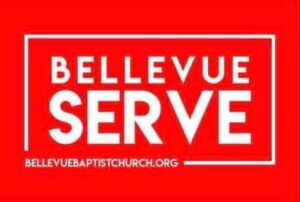Chances are when most of us see the word “serve” we imagine one of two things. We may think of a tennis player or anyone else playing a racquet game putting the ball in play. Or we may think of someone who waits tables at a restaurant.
Yet Jesus made a big deal out of the word. In fact, He went so far as to say that He came not to BE served, but TO serve. (Mark 10:45) Moreover, He taught that His followers should devote their lives to serving. I’ve thought a lot about the word serve the last couple of weeks since we adopted the word as the theme for our mission trip this year. I hope it become more than a mission trip slogan. In fact, I pray that it becomes the word that most identifies my life and my church.
I’ve come to the conclusion that ALL of us serve in one way or another. Either like a tennis player or like a table waiter. But which one reflects the work of Jesus in our life, the tennis serve or the table serve?
Tennis Serve
The object of the serve in a racquet sport is to give the server an advantage over the receiver. The best serves are well placed in hard-to-reach places. They come at the receiver with speed and spin that make it nearly impossible to manage.
We are tennis servers when we focus on ourselves and seek to put ourselves at an advantage over others. You’ve heard the expression, “I don’t get even, I get ahead.” Sadly, that is a life motto of many.
But we also more subtly act as tennis servers. We guard our time and resources so carefully and use them predominately on our own pursuits. We make sure we get our “cut” first and get what we think is our “fair share.” We expect others to comply with our requests, move out of our way, or do what we think they ought to do.
Ultimately, we are like tennis servers when we are self-servers. We put our wants and needs ahead of others’.
Table Serve
The object of serving tables is to meet the needs of those who sit at the table. Some of the best examples of service I have ever seen were from table waiters at restaurants. Those servers made me feel as though the people at our table were the most important people in the world.
Have you stopped to consider that table servers are not growers, cooks, or restaurant owners? They do not bear the responsibility of producing what they bring. They are only responsible to get from someone else something that we need.
The table server works through the time when others customarily eat. She or he also works through sore feet, aching backs, and tired hands. I can’t imagine what it must be like to deliver delicious looking food to tables without being able to eat some of it. But that’s what a table server does. She or he gives so that others can get.
Ultimately, we are like table servers when we serve others first and sacrificially.
How Is Your Serve?
So, how is your serve? What can you do today to be more like the kind of server Jesus calls us to be? How can you put others’ needs ahead of yours? Will you take what Jesus has provided to those around you who need it most? Will you be a tennis server or a table server?
“As each has received a gift, use it to serve one another, as good stewards of God’s varied grace.”
1 Peter 4:10
See also Are You Wasting Time or Chasing Jelly?










